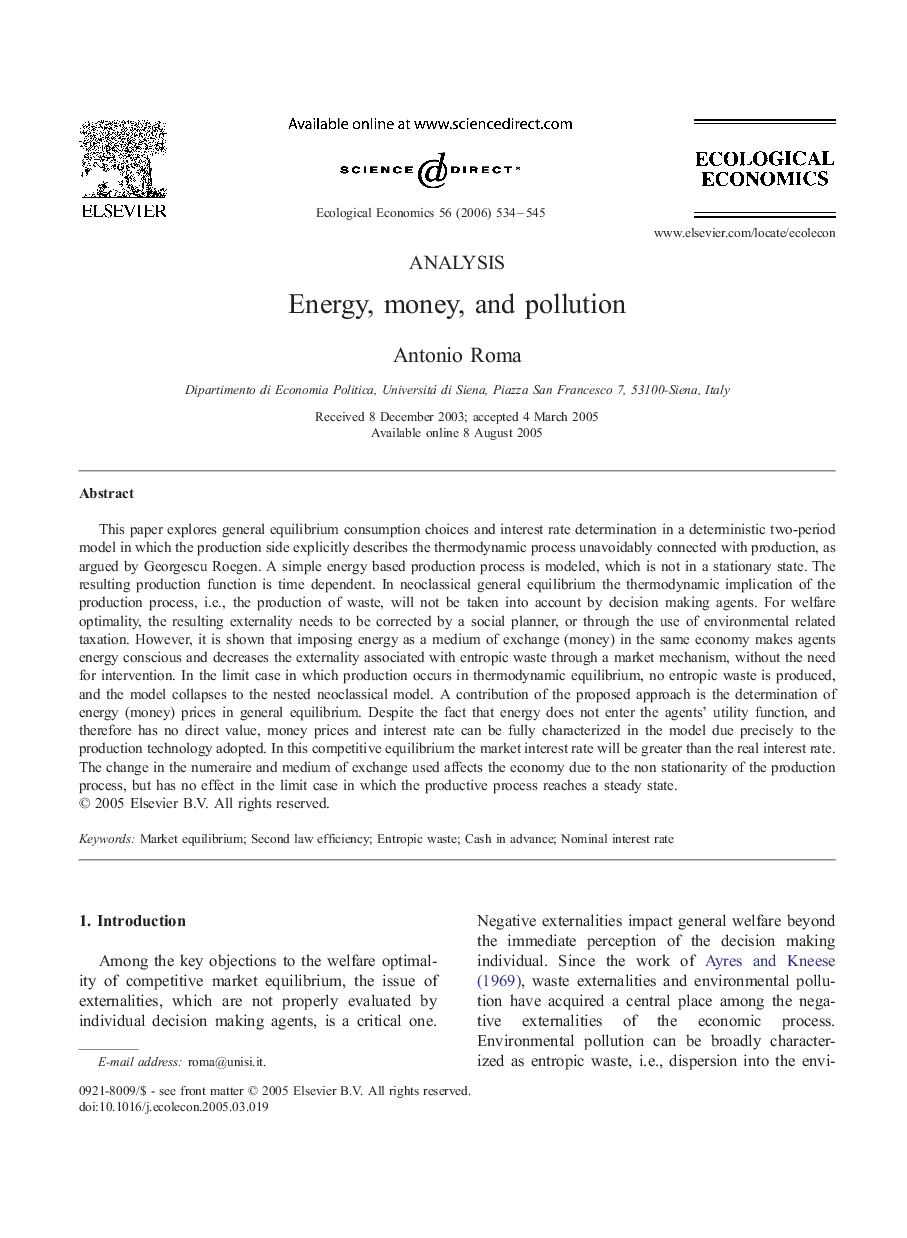| کد مقاله | کد نشریه | سال انتشار | مقاله انگلیسی | نسخه تمام متن |
|---|---|---|---|---|
| 5052585 | 1371175 | 2006 | 12 صفحه PDF | دانلود رایگان |
عنوان انگلیسی مقاله ISI
Energy, money, and pollution
دانلود مقاله + سفارش ترجمه
دانلود مقاله ISI انگلیسی
رایگان برای ایرانیان
کلمات کلیدی
موضوعات مرتبط
علوم زیستی و بیوفناوری
علوم کشاورزی و بیولوژیک
بوم شناسی، تکامل، رفتار و سامانه شناسی
پیش نمایش صفحه اول مقاله

چکیده انگلیسی
This paper explores general equilibrium consumption choices and interest rate determination in a deterministic two-period model in which the production side explicitly describes the thermodynamic process unavoidably connected with production, as argued by Georgescu Roegen. A simple energy based production process is modeled, which is not in a stationary state. The resulting production function is time dependent. In neoclassical general equilibrium the thermodynamic implication of the production process, i.e., the production of waste, will not be taken into account by decision making agents. For welfare optimality, the resulting externality needs to be corrected by a social planner, or through the use of environmental related taxation. However, it is shown that imposing energy as a medium of exchange (money) in the same economy makes agents “energy conscious” and decreases the externality associated with entropic waste through a market mechanism, without the need for intervention. In the limit case in which production occurs in thermodynamic equilibrium, no entropic waste is produced, and the model collapses to the nested neoclassical model. A contribution of the proposed approach is the determination of energy (money) prices in general equilibrium. Despite the fact that energy does not enter the agents' utility function, and therefore has no direct value, money prices and interest rate can be fully characterized in the model due precisely to the production technology adopted. In this competitive equilibrium the market interest rate will be greater than the real interest rate. The change in the numeraire and medium of exchange used affects the economy due to the non stationarity of the production process, but has no effect in the limit case in which the productive process reaches a steady state.
ناشر
Database: Elsevier - ScienceDirect (ساینس دایرکت)
Journal: Ecological Economics - Volume 56, Issue 4, 1 April 2006, Pages 534-545
Journal: Ecological Economics - Volume 56, Issue 4, 1 April 2006, Pages 534-545
نویسندگان
Antonio Roma,